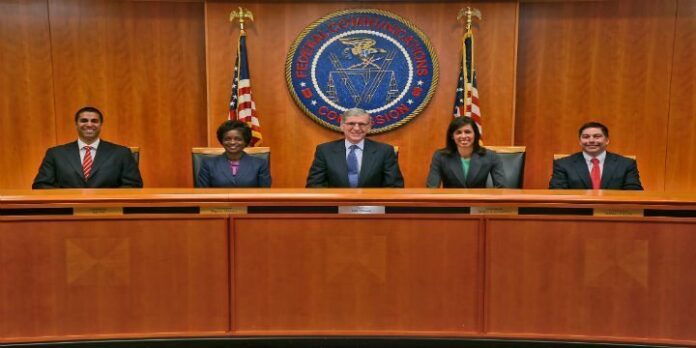The Federal Communications Commission this week was set to host an “Open Internet Roundtable” discussion focused on mobile broadband tied to a court decision earlier this year challenging the FCC’s ability to set open Internet rules.
The roundtable was set to include representatives from wireless trade associations, consumer groups and academia, and be moderated by Roger Sherman, chief of the Wireless Telecommunications Bureau and Jim Schlichting, senior deputy chief of the WTB. According to the FCC, the roundtable was set to consider the application of Open Internet rules to mobile broadband, “with a focus on consumers’ use of mobile broadband and on reasonable network management practices in the mobile context.”
A number of mobile operators and wireless industry associations have put forth arguments that the FCC needs to treat wired and wireless broadband access differently, noting that mobile networks are often constrained by spectrum and technology limitations that do not impact wired broadband connections. Consumer groups have argued that the line between wired and wireless broadband connections has been blurred in the minds of the general public, and that the FCC should look to ensure equal access to the Internet regardless of connection method.
Earlier this year the United States Court of Appeals for the District of Columbia ruled that Verizon Communications, and for that matter all Internet service providers, is not subject to rules that require them to deliver all content at the same speeds. The FCC has historically not lumped wireless broadband providers into the same policies as wired ISPs, but with growing consumer access of Internet services through cellular connections, the agency is taking a look at changing that decision.
FCC Chairman Tom Wheeler, speaking at the recent CTIA event, touched on the topic of net neutrality in regards to mobile broadband, noting he had asked the nation’s four largest operators to provide more details about their practice of limiting data speeds for some consumers. Wheeler said he is concerned that some users who paid for unlimited data are now being singled out for slower data speeds, and that some people who purchased devices based upon an expectation of unlimited high-speed data are instead getting data at reduced speeds.
Wheeler, who had previously served as CEO of CTIA, did add that he recognized the bandwidth limitations in offering mobile broadband services.
—The Competitive Carriers Association this week filed with the FCC a targeted Petition for Reconsideration of rules adopted by the FCC for the planned 600 MHz incentive auction. The petition asks the FCC to reconsider its rulemaking to link the availability of “reserved” spectrum blocks to a “two-part trigger, which exceeds the amounts statutorily required to be collected through the auction, risking its success.”
The FCC announced initial rules in May for the 600 MHz incentive auction, currently scheduled for mid-2015. The forward-auction rules included limits on certain potential spectrum license participants, noting that no more than 30 megahertz of spectrum will be set aside in all markets in a reserved manner for those participants holding less than one-third of spectrum in those markets below the 1 GHz level. That rule is most pointedly targeted at the likes of Verizon Wireless and AT&T Mobility, both of which control a lion’s share of the nation’ sub-1 GHz spectrum, and follows guidelines proposed by T-Mobile US last year as part of its “dynamic market rules” filing.
T-Mobile US has since asked the FCC to reserve more low-band spectrum for non-nationwide carriers and those that do not already have at least 45 megahertz of low-band holdings in a particular partial economic area.
CCA President and CEO Steve Berry noted that while the trade organization applauds the FCC for including the reserve provision, “we would like the FCC to build on the good work it has done to promote a competitive marketplace, and the Petition for Reconsideration seeks to ensure competitive carriers can access the reserved blocks of spectrum.”
“No one is arguing that the commission should not set a reserve price for this auction that allows the federal government to recoup enough money to compensate exiting broadcasters, reimburse relocation expenses and pay other statutorily required amounts (including funding any remaining FirstNet obligations),” Berry said. “The trouble is, there is currently no certainty that competitive carriers will be able to access the reserved spectrum. Because of the unique nature of this ‘once-in-a-lifetime’ opportunity, CCA wants to ensure the FCC has fully considered the risks associated with the additional reserve trigger. CCA merely seeks to ensure the FCC promotes the most competitive auction and because it has failed to articulate any good reason for this ‘double trigger,’ CCA has asked the commission to reconsider this portion of the Report and Order.”
Make sure to keep up to date on policy news by visiting RCR Wireless News’s Policy page.
Bored? Why not follow me on Twitter?

